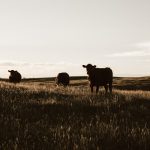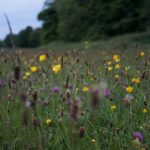
Press release
Pioneering green economy multinational player TERRAGRN is creating positive social, environmental, and economic change in South Africa through innovative community-centric and nature-based solutions.
With the rollout of phase one of its major South African $2.6 billion agroforestry project in full swing, vast socio-economic benefits for the community, including women and children – will comprise of the creation of more than 50,000 jobs in the next 10 years, in South Africa alone.
The project is on track to turn up to 200,000 hectares (ha) of unused land in coal mining-centred Mpumalanga, South Africa, into a sustainable land management agroforestry project, over the next 10 years. With reversing the devasting impact of climate change the ultimate goal, around 11 million tonnes of sustainably harvested biomass will be turned into energy and materials solutions through the SA project, greatly assisting SA to meet its climate change commitments and accelerate moves to a just energy transition.
CEO of TERRAGRN, Sundar Bharadwaj, says the initiative is all about sharing and helping societies and economies overcome the ongoing devastation created by climate change.
“You only needed to hear a single seminar at the recent COP27 summit in Egypt to know that the world is in trouble and the time for talking is over. It is time for fast action, not just a renewed commitment, and we believe that by revitalising degraded landscapes, we can help move the needle and address and mitigate the environmental, social, and economic impacts of the crisis.
We are not competing with coal, but creating a pathway to a just energy transition, based on science, and underpinned by careful planning that includes all stakeholders, communities, and broad supply chains into a long-term and sustainable solution. The agroforestry broad eco-system will create jobs for the long term.
Building a nuclear plant does not create anywhere near the jobs and a scale of benefits we are talking about here. Forestry jobs and related skills and food security last. This is really a holistic, integrated solution, which takes entire communities and societies along the journey to a better future and world. We are solving multiple ills with a single solution,” he says.
With Africa’s biggest problems of poverty, climate, food- and energy-insecurity being interconnected, TERRAGRN’S model has been designed to limit the worst effects across all of these in a holistic way, while driving positive change and opening the door to exciting growth opportunities. It consists of an integrated agroforestry system designed with commercialised plants to assist in growing and harvesting sustainable, non-invasive, bamboo, as well as a productive food forest – both of which will significantly boost the conservation of the local natural habitat.
Energy, materials, and food solutions will be provided for multiple business sectors.
“Solving SA’s energy challenge requires a just transition to renewables, but growth in renewables does not address underlying demand, nor the loss of jobs in coal-mining-centric Mpumalanga. Bio-massed fuel and hydrogen, like we will produce in the region, will overcome those hurdles,” says Bharadwaj.
Some of the key outcomes of project include:
-
- 11m tonnes of dry bamboo biomass sustainably harvested annually will provide fuel source for energy solutions and materials for solutions in the construction and furniture sectors.
- 100+ MW of renewable biomass-to-power capacity from forest waste for captive use.
- Citrus and other fruits, nut, and cereal from harvests (being planted in addition to the bamboo) will be sold/ distributed across local supply chains, boosting local/ regional economies, and creating immense business opportunities – not only for farmers but also in the logistics, retail, warehousing, and manufacturing industries. And importantly plays a critical role in delivering biodiversity in our forest.
Crucially, TERRAGRN is taking the Community Property Association (CPA) and the local workforce into the shareholding structure of TERRAGRN. This will enable generational wealth creation for local communities, development of social infrastructure, and long-term protection of the forest.
“Our introduction into SA comes with broad stakeholder, community, regulatory and government backing. We are here to make a meaningful difference, and we are exciting to bring communities and people of SA with us as we do good for planet and provide new opportunities for growth and renewal,” concludes Bharadwaj.
Photo by Julian Paolo Dayag on Unsplash
Relevant Agribook pages include “Forestry” and “Bamboo farming“.







